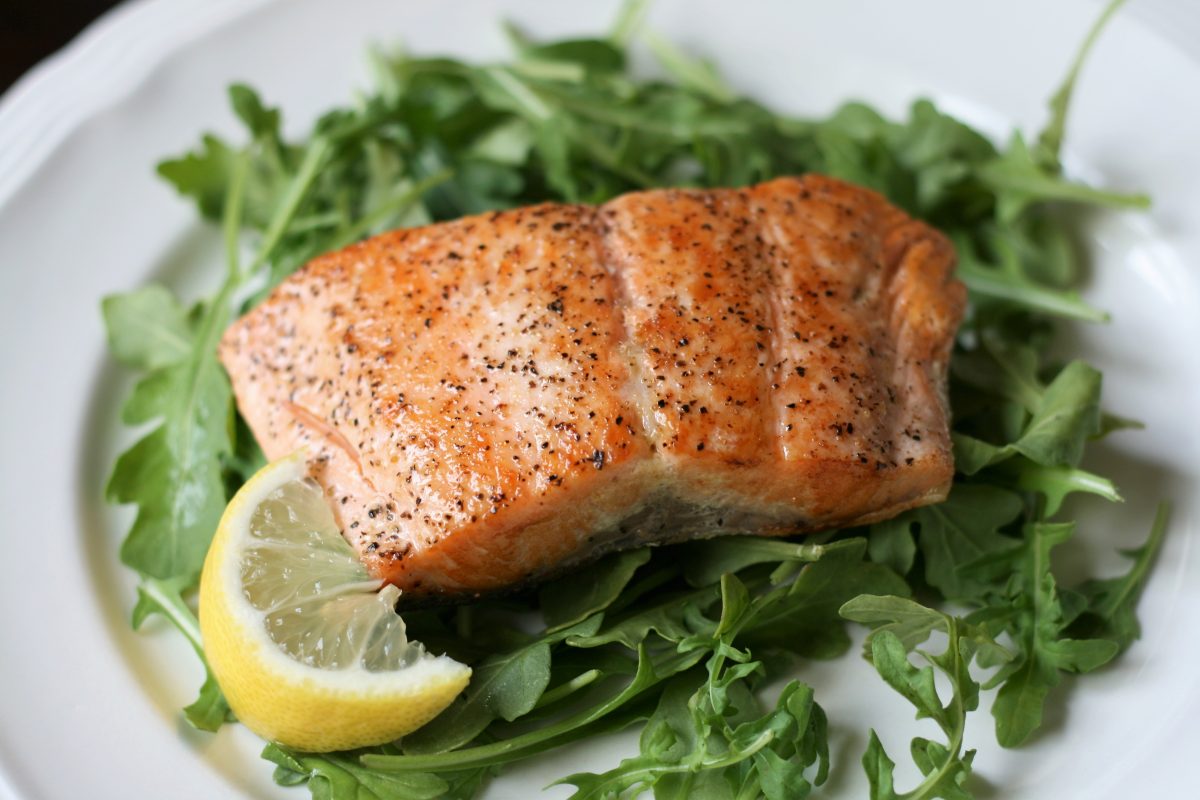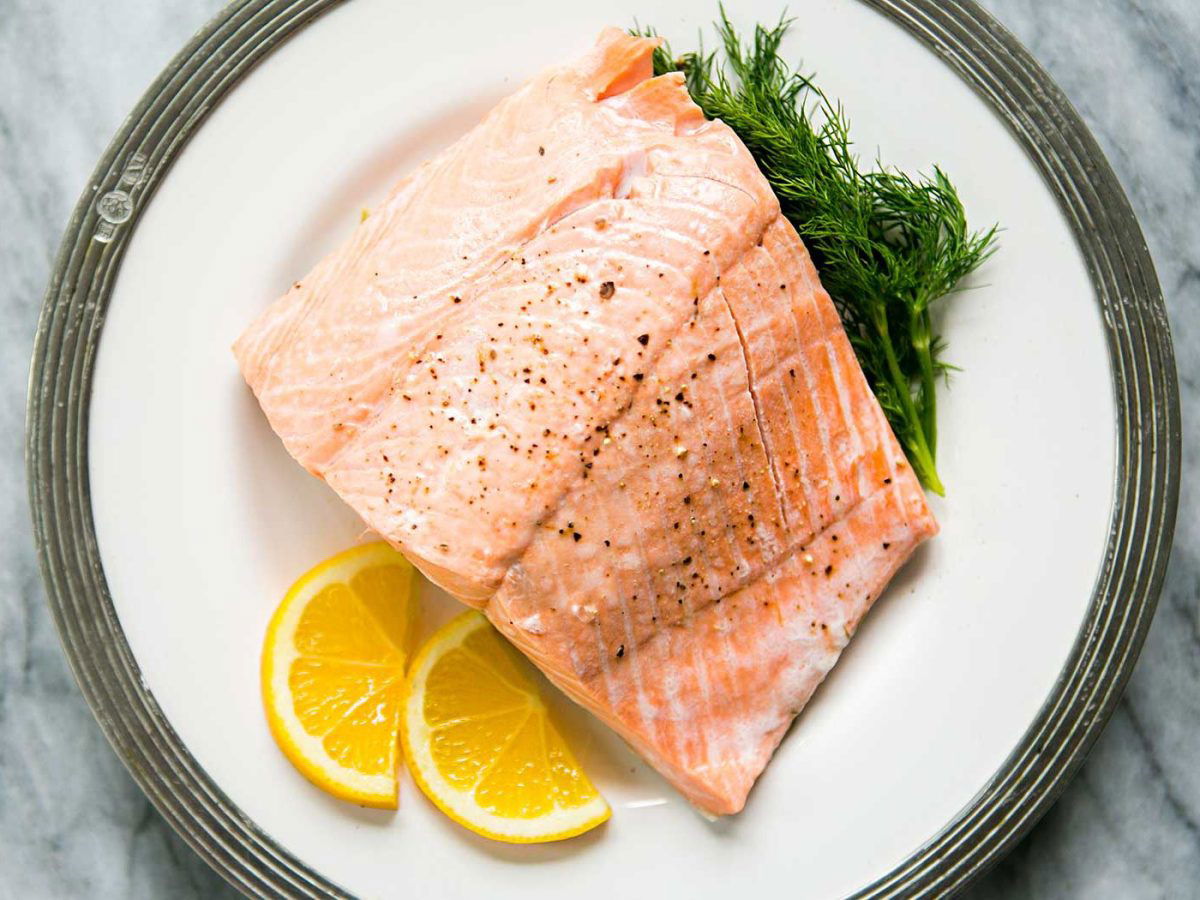 When You Eat Salmon Every Day, This is What Happens To Your Body
When You Eat Salmon Every Day, This is What Happens To Your Body

When it comes to seafood, there are many options to choose from. And while there are several great types of fish to choose from, salmon is one of the most beneficial. It is very fatty and rich in texture and has a distinct flavor profile that sets it apart from other fish. In addition to its great taste, it is very healthy in nature. Still, another great aspect of salmon is that it is very versatile in terms of preparation. It can be grilled, seared in a pan, smoked, or baked. Some even consume it raw if the quality is high.
The quality and type of salmon is definitely a factor to consider when consuming this fish. One of the best types to purchase is wild caught, but farmed salmon is still beneficial as well. Farmed salmon is considerably cheaper, so this may factor into your decision making. If you do choose farmed, be sure to search for companies that practice sustainable and healthy farming practices. So with that being said, if you are planning to eat fish daily, you may wonder how this will affect you. Here is an in-depth look at what happens to your body when you eat salmon every day.

Your eyes will say thank you
Salmon can work wonders for your eye health. “Your eyes will feel less dry because the Omega-3 fatty acids in salmon can improve the quality of the oil layer in your tear film,” says Dr. Jonathan Wolfe, a New York based optometrist. “This important oil layer is produced by small glands on the margins of our eyelids, and serves to prevent the tears that lubricate our eyes from evaporating too quickly.” Salmon can also boost retinal health.

You may get a boost of energy
If you are always on the go, but don’t have the energy to sustain your lifestyle, salmon may help you. “You will feel more energetic due to the high B12 content,” says Kylie Ivanir, a registered dietician at the Institute of Human Nutrition at Columbia University. “Half a filet can provide you with about 80 percent of the recommended daily intake of B12. Salmon is also high in the rest of the B vitamins, which provide your cells with energy.” Additionally, salmon can help you recover more quickly from injuries.

You could lose weight
If you are hoping to shed a few pounds, salmon can assist with this as well. “You will lose fat because salmon is a high protein/low-calorie food,” says Ivanir. “A serving size (approx three to four ounces) is only 200 calories and about 25 grams protein. Eating high protein foods increases your metabolic rate and keeps you full.”

Your cholesterol might improve
High cholesterol is becoming more prevalent year by year, with an estimated 95 people dealing with it in just America alone. A bonus for those who may be dealing with high cholesterol is that salmon could help you lower it. “Your bad cholesterol (LDL) will drop due to the low saturated fat and high Omega-3 content in salmon,” says Ivanir. “Low LDL is critical for optimal artery function and heart health.”

Your brain could get a boost too
Salmon can actually lower your risk of brain disease. “Consuming EPA and DHA supports the health of the brain at all stages of life,” says Christie Naze, a registered dietician. “It is beginning to become clear that low DHA status may be a risk factor for Alzheimer’s disease and other types of dementia, and with cognitive impairment associated with aging.” Salmon can also help you improve your mood because of the Omega-3 content.

Your skin could improve by eating salmon
Who doesn’t love an improvement in their skin? Salmon can do just that. “I consider salmon to be one of the superfoods for skin health,” says Dr. Rachel Nazarian, a New York dermatologist. “When you have a high level of good fat in your body it feeds the skin and allows the skin to make this healthy oil and allows the skin to be healthier. That’s what gives skin the glow.”

Salmon could boost your immune system
Salmon is a great way to boost your immune system, especially if you need to increase your vitamin D intake. “Research has found that adults with low levels of vitamin D in their system were more likely to have recently suffered from a cough, cold, or upper respiratory infection,” says a registered dietician named Pamela Bede. “And because you can’t get the vitamin D you need from the sun in the winter months, diet is extra important.”